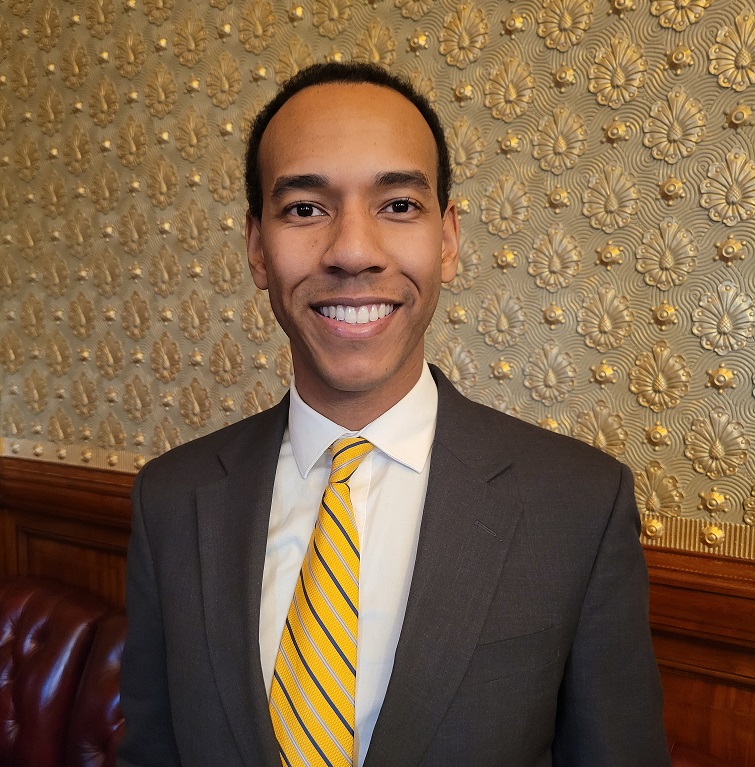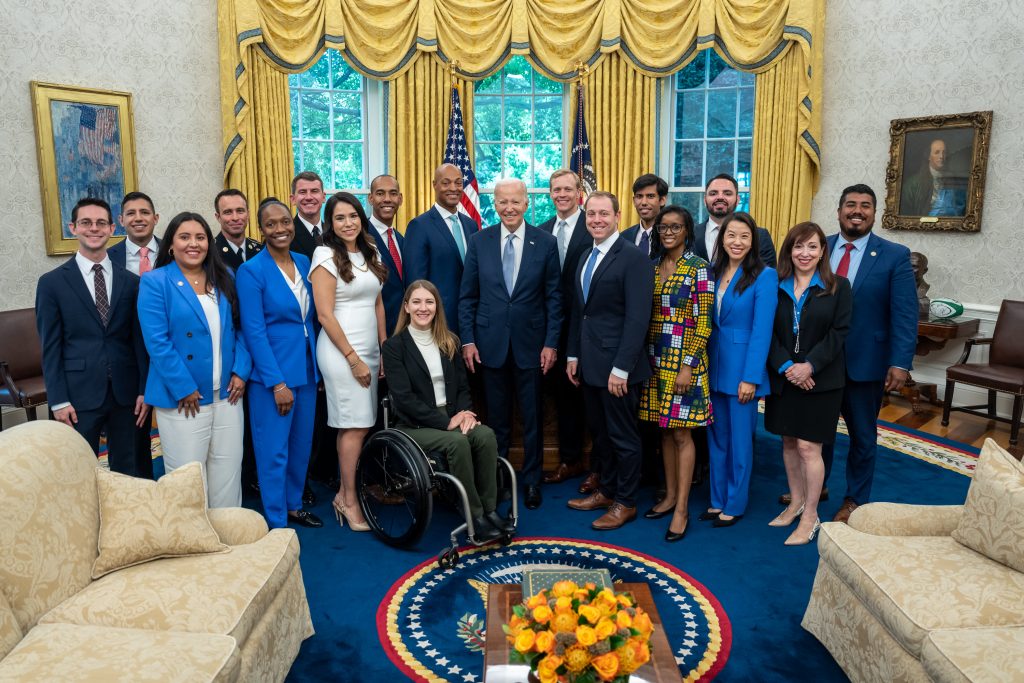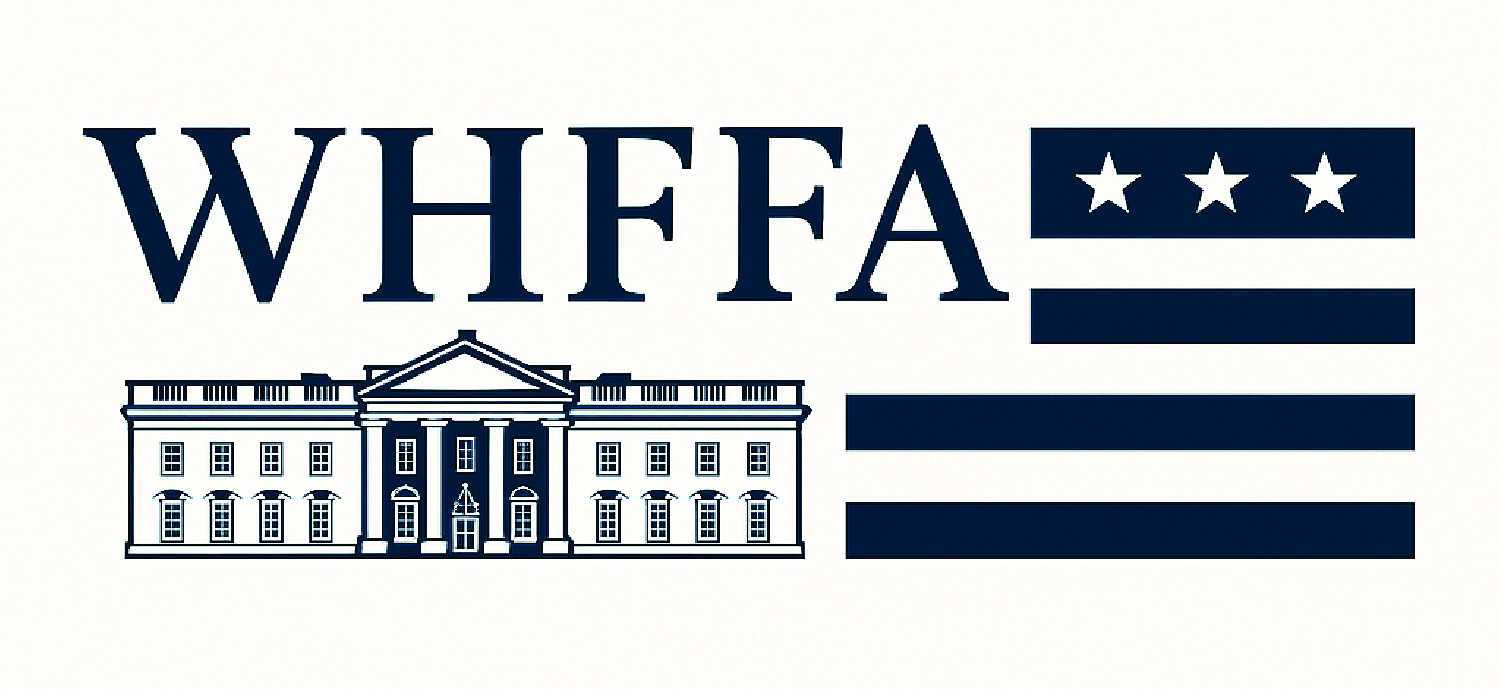WHF Profile: Harrison Hines (2022-23)

Can you tell us about yourself and your work before the White House Fellowship?
I am a Minnesotan born, a Hoosier raised, and a Californian adopted and trained. I am a neurologist, and the foci of my vocational ethos are my training as a physician and my background in theological ethics. The passion unifying those dual cores is a desire to serve people throughout my career.
Prior to the fellowship, I was completing a neurology residency at the University of California, San Franciso. The staff, faculty, and patients I met during my training there taught me more about myself and the human experience than anyone else ever has. I love that neurology department, and I am indebted to them for teaching me their craft.
How did you hear about the White House Fellows Program and what made you decide to apply?
While I had seen the name of the program when reading about notable alumni in the recent past (I remember first seeing it associated with Colin Powell), it did not become a tangible possibility until I was in the middle of my neurology residency. One of my close co-interns from my first year of residency training had become a White House Fellow. He is a dear friend, and hearing about his experience first-hand gave substance and form to the program for me.
I applied to be a fellow to get upstream of the myriad challenges facing my patients and our society in general. Government is a vehicle in service of the common good. I caught a glimpse of the impact of government service when I interned with a California Assemblymember during my final year of medical school. I was humbled and convicted by the kind of effect one can have through thoughtful policy development and implantation. The White House Fellowship Program presented an incredible opportunity to participate in that process.
Where were you placed and what was the focus of your work?
I joined the Domestic Policy Council and worked on the Health and Veterans team. That small, but mighty, crew drives the President’s policy agenda for those two areas. My portfolio encompassed a diverse collection of topics which felt disorienting at first. However, I now count that wide range as a blessing. The work included: spearheading the development of the U.S. Playbook to Address Social Determinants of Health; helping to secure $8 billion in commitments from non-Federal sources to decrease hunger, improve nutrition, and promote health across the country; working alongside colleagues in economics and national defense to fortify our nation’s medical supply chain security; and more. I am grateful to have had the opportunity to work on such a variety of issues in the span of a single year.
What was your fellowship class like?
Bonding with my class remains the undisputed best part about my White House Fellowship year. I am moved, inspired, and encouraged by my fellowship class. Our Fellows represent the diversity of America in all its facets. Through eating, laughing, teasing, praying, learning, and simply living alongside one another, they have changed my life. For many of us, the fellowship year takes us away from our careers, from what we know and have spent years mastering. Rediscovering who we are and unearthing new aspects of ourselves in community with one another is an invaluable experience.
What did you do immediately after the Fellowship?
I spent a few months investing in my family. They sacrificed heroically for me to complete fellowship year, and I wanted to spend time just being there for them. I got into a regular cadence of taking the kids to the park every day after school, and we went swimming every weekend. I took our son on a father and son camping trip where he discovered how much he love smores (and now he wants it for dessert whenever he can get it). My wife and I got into a biweekly cadence of going on dates and exploring the city. It was a wonderful, treasured time. After a few months, I began my next job working at the Department of Veterans Affairs in the Veterans Health Administration.
How did the trajectory of your life and work change after the White House Fellowship?
Before the fellowship, I had been seeing patients as a full-time doctor for four years. The fellowship opened the aperture for me to a world of careers that I did not even know existed. I went on to work in health policy and administration at the Department of Veterans Affairs, a job I would not have considered (nor likely been offered) had I not spent a year learning about policy development at the Domestic Policy Council. I was no longer seeing patients full time, but I discovered that I still felt as if I was making a meaningful difference in the people’s lives.
What advice would you give to prospective applicants?Â
Know your “why”. This fellowship is an amazing way to serve and learn about how our government operates, but it is not the only way to do so. Spend time reflecting on who you are, what you want to accomplish in the future , and how disrupting your career now to do this fellowship will help you achieve that goal.
If you do choose to apply, I recommend treating the application like a tool. Let it be a forcing function to help you delve the crevices of your spirit and unearth your smoldering dreams and quiet uncertainties. Even if you are not selected to advance, you will still leave the process with more than you entered.

